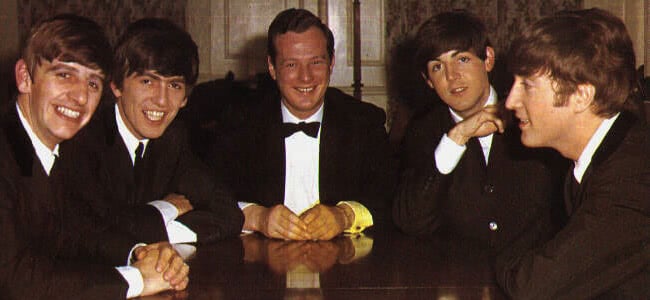Behind every successful and hardworking band, there is an even more hardworking manager, the one person whose job it is to be the party starters, the business schmoozer and the babysitter all wrapped into one.
Even considering all the hard work, it’s no doubt that being a band manager is career full of rewards – getting to travel the world, hang out backstage and party are just party of your day to day rituals.
So what does it take to be a great band manager? We chatted with Ben Dennis, the manager of Canberra born electronic duo Peking Duk, who since the unprecedented success of their euphoric, summer anthem ‘High’ have been taking the world by storm.
The duo’s single ‘High’ has made the band an ARIA-chart topping, Independent Music Award-winning act. During this time Dennis has been working alongside the band securing festival shows, national and international tours, and an international record label deal. We chatted with him about the #7 secrets for being a successful band manager.
If while reading this article you think this is the career for you – you should check out the killer opportunities to study entertainment industry management at AIM.
Network, Network & Network
“Everywhere you travel & every show you go to it’s (fortunately) necessary to drink a lot of beer, with a lot of different people. Introduce yourself to everyone and become friends with everyone, You never know who you might meet. At a dingy bar in Austin, Texas (at SXSW) I met an A&R from RCA Records who we then went on to sign a worldwide record deal with.”
(Peking Duk and their collaborators SAFIA on tour. Photo credit: Pat Stevenson)
Have Patience
“Things take time in the music industry and results don’t just happen over night. If you don’t get the addition on Triple J you hoped for – go back to the drawing board and try again with your next single. This is the same for doing deals and releasing music, sometimes it takes longer than you anticipate but the wait is truly worth it.”
(Hard work does pay off. Photo credit: Jayden Ostwald)
Communication
“My average 24 hour day broken down to percentages: 10% Sleeping, 10% eating & 80% Communicating. As a manager writing emails will become a second nature. The biggest tip here is archive your emails after you have replied to them to keep your inbox nice and tidy. It’s a real reason for celebration when your inbox reaches 0 emails. Another big thing is learning to convert timezones.. If you are calling New York from Melbourne you want to make sure you don’t arrange a time for 4:00 AM.
(The eating 10% of the day. Photo credit: Pat Stevenson)
Build A Solid Team
“When building a team around your artist you want people you can rely on and people you can also get along with. Talk to your peers about who they use in certain areas and get recommendations. There are so many people on ‘Team Peking Duk’ who each have a significant role to play; from our accountants, lawyers, and record label to our sound engineer, lighting designer and pyrotechnics suppliers! On a tour you are more than likely to share a hotel room with a few others to cut costs so good personal hygiene is something to consider as well!”
(All this wouldn’t happen without the team. Photo credit: Pat Stevenson)
Invest
“Like any business you want to consider investing back into the act. A major investment we made with Peking Duk was the decision to travel to SXSW in America. While at the time it was the most money we had spent on anything before, the return was well worth it as the guys performed in front of some record label scouts which in return saw us being signed. Examples of other investments we have made include; Facebook marketing for current singles, A killer lighting designer, Pyrotechnics at festivals etc. etc.”
(On tour for Groovin’ The Moo. Photo credit: Pat Stevenson)
Utilise The Power Of Social Media
“Social Media can be a powerful tool to reach new fans and to engage current fans. Using advertising on Facebook can grow your database/fanpage significantly e.g. If you support a large band, target the headline acts fans in an advertised post to draw them to your page. You also want to show your acts personality through their social media.. Sometimes just posting plain text and only gig flyers can become mundane quite quick and will lose engagement with your fans.”
(Backstage. Photo credit: Pat Stevenson)
Ask Questions
“The music industry is a constant learning game, don’t be afraid to ask questions if you are unsure of something or if you want to learn more about something specific. There are many many people out there who will be willing to share their knowledge with you.”
(Watching over the band. Photo credit: Pat Stevenson)
For more info on music management courses, visit www.aim.edu.au

































